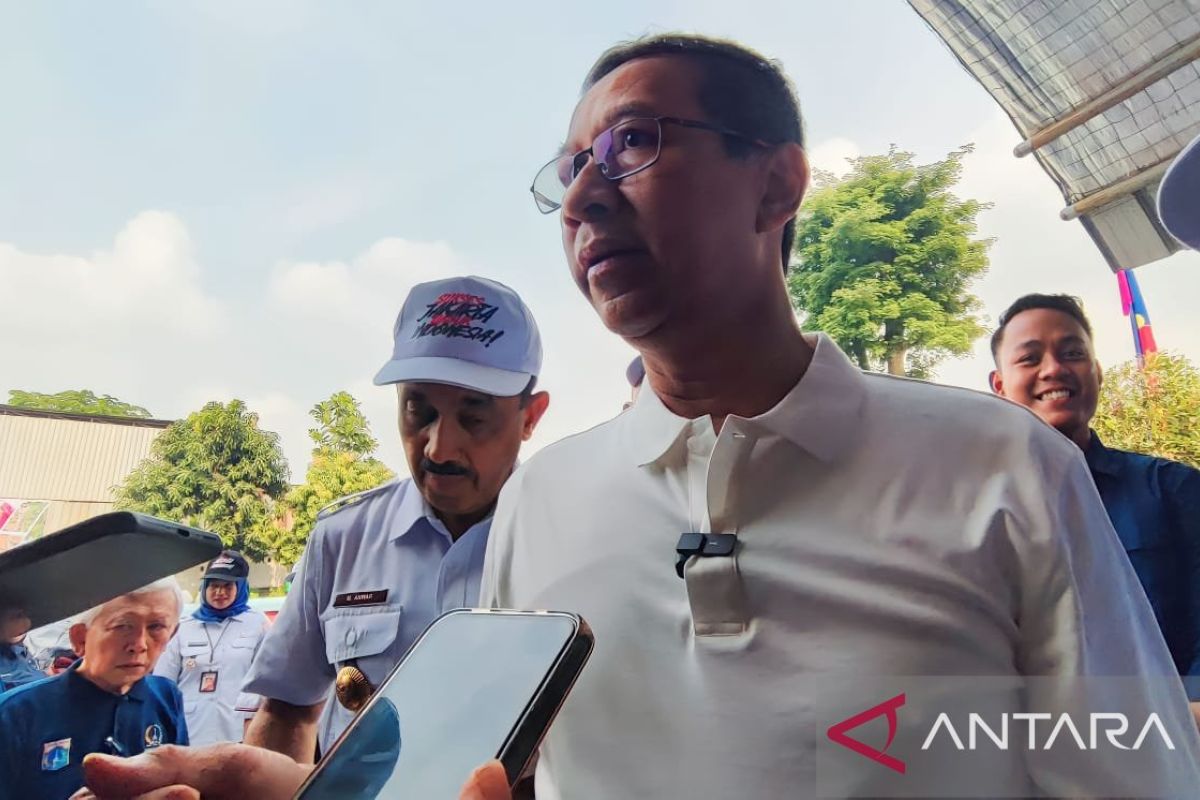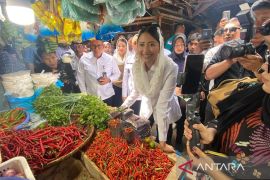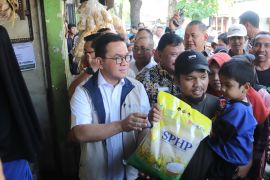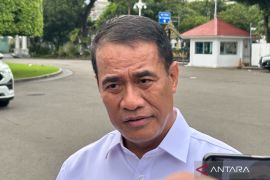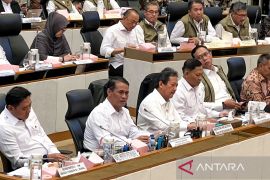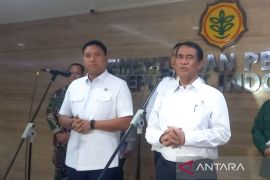“Food security consists of maintaining the inflation rate, which involves (sustaining) the availability of rice and staple foods,” acting governor of DKI Jakarta, Heru Budi Hartono, said on Wednesday.
Hartono made the statement after a chili harvest activity at Rawa Jaya Child-Friendly Integrated Public Space (RPTRA), Duren Sawit sub-district, East Jakarta, following President Joko Widodo’s instructions regarding inflation.
He also urged Dharma Jaya, Food Station, and Pasar Jaya to increase rice availability.
“Each of the companies will conduct a meeting with their commissioners,” Hartono informed.
He said that currently, staple food stocks are sufficient to last for three days, but a stock increase could help secure their availability for six days.
Hartono has not yet specified the current availability of staple food stocks, including rice, in Jakarta.
However, assistant to the provincial secretary for economy and finance, Sri Haryati, stated earlier that rice stocks in DKI Jakarta have improved as of early October (October 4, 2023).
As of October 4, the National Logistics Agency (Bulog) has supplied 31 thousand tons of rice to Cipinang Rice Central Market out of the targeted 35 thousand tons.
According to State-Owned Enterprises Minister Erick Thohir, rice stocks are expected to be safe throughout October and November, as rice availability from Bulog has been pegged at 1.7 million tons in October and is targeted to reach 2 million tons in November.
President Joko Widodo earlier said that regional governments must not hesitate to use their contingency budget to curb inflation in the middle of the increasing price of rice.
While issuing instructions to regional leaders at the State Palace in Jakarta on October 30, Widodo emphasized that a contingency budget can be used to control inflation as the measure has a legal basis.
“I ask whether there is a legal basis for it. Do not hesitate to use the contingency budget. If inflation rates increase and prices surge, then provide the stock immediately,” the President stressed.
He noted that the average national rice prices increased by 19.8 percent compared to the previous year and by 2.5 percent compared to the previous month.
President Widodo advised regional leaders to retain their capability to intervene with regulations to control food price inflation.
According to the President, an inflation rate of 1.1 to 3.5 percent at the provincial level can still be considered under control. A district-level inflation rate of 1.1 to 5.2 percent and a city-level rate of 1.1 to 4.2 percent can also still be said to be under control.
He said that if inflation rates approach the upper limit, regional governments must look for a solution immediately, such as ensuring stocks in the market or monitoring production places if a commodity is scarce in the market.
“Sometimes it is only supply and demand. The demand is consistent, but the supply is nonexistent. (Regional governments) should then look for the commodity in its production place,” the President expounded.
He also urged regional governments to not get trapped in daily routines. When a certain food item’s price increases, regional governments must look for its production sources so that it does not influence the inflation rate.
“Look at the market; look at the stock in the district and in the province. Check, look, and do not get trapped in the daily routine and administration. We must check for important things first,” the President advised.
If this is done, then regional governments can focus on other things such as administration.
“(The quantity of items) can increase or decrease in the market. But when it comes to price, please monitor it closely,” President Widodo said.
Related news: Govt prepares moves to mitigate risk of decreasing food production
Related news: Bapanas ensures sufficient rice stocks amid reduced production
Translator: Syaiful, Luthfia, Azis Kurmala
Editor: Tia Mutiasari
Copyright © ANTARA 2023
